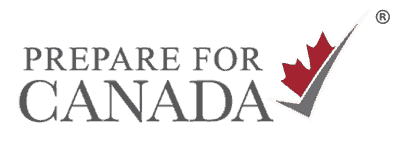
Without a doubt, higher education (or post-secondary education) can give you an edge in the highly competitive Canadian job market. Learning new skills or upgrading your current skills will increase your value and help you stand out from other job seekers. As well, when you show a thirst for continuous learning, you are more attractive to employers. Higher education can also provide other benefits to newcomers.
Many people in Canada attend post-secondary education at a university, college, trades program, or private college.
Students must apply to the school of their choice and prepare to pay tuition fees. While there are some scholarships available, most students must pay for tuition with the help of student loans.
Three Benefits of Higher Education in Canada
1. Improve Your Job Prospects
Surprisingly to newcomers, employers like to see the names of Canadian schools on resumes. Often it’s because when managers recognize the schools you have attended they are more confident in their hiring decision.
Advertisement:
So attending a Canadian school may give you an edge over those who have studied at foreign schools. But if you have not attended a Canadian school, it may be helpful to get a credential evaluation. Doing so will help employers compare the school you attended in another country to Canadian schools.
2. Meet Requirements to Work in Your Field
You will require a license to work in some professions in Canada. These are known as regulated professions. And because the education system in Canada may differ from your home country, you may need more training. A credential evaluation will show if your education is equal to that of a Canadian school.
Some examples of regulated jobs include:
If you are thinking of changing your career, then higher education will give you a good start to a new career.

Related Posts:
An Overview of the Canadian Education System
Advertisement:
5 Popular Book Series Your Children Should Read
What to Know About Living in Kitchener-Waterloo
Settle in Canada with Confidence and Ease
3. Network with Others

Pursuing higher education allows you to meet others who may work in your field. This helps you to grow your professional network and can even help you access the hidden job market. In the hidden job market, you’ll discover jobs that are not advertised. And because these jobs aren’t widely posted, it can make your job search easier.
Learning is a constant process and Canadian employers value your commitment to ongoing learning. When you focus on continuous learning, it may also help you to progress in your career.
Pathways to Higher Education in Canada
You can attend a university, college, or private school. Or, you can also consider options such as bridging programs and certificate programs.
Universities
Many Canadian universities are well respected across the world, including:
University studies develop critical thinking and research skills as students work toward a:
- bachelor’s (undergraduate) degree
- master’s (graduate) degree, or
- Ph.D. (doctorate) degree.
Class sizes tend to be large, with some lecture halls counting hundreds of students. Although you may also attend smaller tutorials or labs.
Colleges and Technical Institutes
Colleges and technical institutes offer a range of applied programs that typically prepare you for a career. Students work toward a:
- diploma
- certificate, or
- applied degree.
Some colleges also offer apprenticeship training for trades. The hybrid “university college” may also offer undergraduate degrees.
Class sizes are typically smaller than in universities. And tuition fees are usually less expensive.
Private Colleges
Private career colleges are private businesses that could be either for-profit or non-profit. They do not receive government funding like colleges and universities. And because of this, fees tend to be quite high.
Private colleges offer certificates and diplomas in fields such as:
- business
- electronics
- health services.
They offer flexible learning schedules, and you can enroll at different times during the year. Training is usually delivered over a short period of time. Some private schools, including some English language schools, are not regulated by the government. So make sure to research the school before you pay any fees.
Bridging Programs
Bridging programs are another way to get more education. These programs are delivered in partnership with a college or a university. They tend to focus more on soft skills as compared to hard skills.
A bridging program can fill the gap between Canadian and foreign education and work experience. And bridging programs offer a faster way to get Canadian experience. Most bridging programs are between six weeks to three months.
Functional Business Programs
In contrast with other courses, you can also explore certificate programs that relate to your business function such as:
- Marketing
- Finance
- Human Resources
- Information Technology
- Supply Chain
These certificate programs can add to your current skill set or start you on a new career path.
Cost of Higher Education in Canada
Tuition fees vary depending on the school and program you attend. Fees for universities are higher than colleges. As well, the cost to attend a graduate program is higher than the cost of an undergraduate program.
The cost also depends on your immigration status in Canada. Canadian citizens and permanent residents pay domestic tuition fees. Foreign students pay international tuition fees that are more expensive than domestic fees.
For example, consider how costs compare for the full-time MBA program at the University of Toronto:
- Domestic tuition fees: $92,000 (CAD)
- International tuition fees: $127,000 (CAD).
Canadian citizens and permanent residents can obtain Government of Canada grants and loans depending on:
- the province you live in
- family income
- number of dependents
- disability.
You do not have to repay grants. However, you have to repay loans within a defined period of time.
If you’re studying as an adult, it may be difficult to attend school full time and work. So, you may think that returning to school isn’t viable. However, adding some Canadian education to your resumé could mean the difference between finding a job in your profession and a “survival job”.
Many post-secondary institutions offer part-time and distance education courses geared toward working adults. This allows adults to study and work at the same time.
Higher education can help you stand out in a tight job market. Many schools allow you to gain practical work experience through job placement. And most importantly, it may even help you to advance your career in Canada.
Helping Your Child Choose Post-Secondary Studies
Post-secondary education is very much self-guided in Canada. Aside from a small number of required courses, students are free to choose what subjects they would like to study. For example, a person working toward a political science degree may take a welding course just because it fits their schedule.
Speak with your child to determine what’s important to them. Choosing post-secondary is a big step and your child may need help to understand the system.
How to Apply to a Post-Secondary School
Each school has its own admission process and deadlines. For example, some schools run on a three-semester basis and accept students at the beginning of each semester. However, other schools may follow a yearly schedule with application deadlines in early spring.
You can contact the admissions department and visit school websites to find out what programs they offer.
Each school will also have its own criteria to recognize international academic qualifications. They may also require your academic credentials to be translated and verified.
You may have to get your academic credentials assessed through a credentials evaluation service. Because they charge a fee, make sure that the school accepts the assessment from the service you select. This will help you avoid paying extra costs.
Depending on the faculty or program you apply to, you may also have to show proof of specific courses. To be eligible to apply for certain programs at the university level, a student must take certain classes in high school. For example, English and Math 12 are usually necessary with a high-standing grade.
Provincial Post-Secondary Education Grants and Loans
- Alberta
- British Columbia
- Manitoba
- New Brunswick
- Newfoundland and Labrador
- Northwest Territories
- Nova Scotia
- Nunavut
- Ontario
- Prince Edward Island
- Quebec
- Saskatchewan
- Yukon
Additional Resources
For more information about education in Canada, check out these sites:

Anjali has worked in journalism and corporate communications in the UK and in India. Working across geographies in an international environment has taught her to find unique opportunities to create content for a diverse range of audiences. Pushing herself out of her comfort zone to move to the UK and Canada helped her adapt and thrive in new environments.

